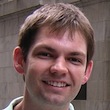Cert. Petition Preview: Religious Speech on Public University Campuses

on Sep 7, 2007 at 9:40 am
This is the first in a series of posts previewing petitions for certiorari to be considered at the Justices’ Long Conference on September 24. Each will also be listed in the Petitions to Watch post before that conference.
In this post, we’ll look at Gilles v. Blanchard, et al. (06-1617), a case involving religious speech on a public university campus. The petition, brief in opposition (BIO), and reply for Gilles are respectively available here, here, and here.
The petition presents two questions: first, whether an open area on a public university’s campus should be considered a public forum for speech purposes; and second, whether campus officials can exercise “unbridled discretion†in regulating speech on public university property, even if the speech occurs in a nonpublic forum.
Since the early 1980s, James Gilles, a preacher informally known as “Brother Jim,†has spoken and distributed Christian literature on hundreds of college campuses around the country. According to Gilles’s petition, he visited Vincennes University, a public university in Indiana, in August 2002 in an attempt to discuss “faith and other moral issues of the day†in “an open and accessible part of the campus resembling a sidewalk and public park.â€
A campus security officer stopped Gilles’ presentation and informed him that he would have to submit a “Request for Solicitation Approval†form to the dean of students. The dean deemed Gilles’s speech solicitation, meaning that Gilles could only speak in the area designated on campus for solicitation: a brick walkway in front of the student union “adjacent to a public street at a three-way intersection,†according to the petition. Due to noise and little student traffic in the designated area, Gilles ultimately decided to leave the campus. He brought suit in mid-2004. The district court granted the university’s motion for summary judgment, and the Seventh Circuit affirmed in February.
The petition argues that the Seventh Circuit’s decision stands in contrast to rulings in the Fifth, Eighth, Ninth, Tenth, and D.C. Circuits on whether open, park-like areas on public university campuses are public forums. The petitioners also allege a split “over the unbridled discretion doctrine and its application within nonpublic forums,†with the Federal, First, and Seventh Circuits disagreeing with the Fourth, Eighth, Tenth, and Eleventh Circuits.
For its part, the university disputes Gilles’ characterization of the lawn as a public area. Its brief in opposition says the lawn is not adjacent to any public street or sidewalk, and that all previous speakers on the lawn spoke at the invitation of a member of the university. The university downplays the former split by arguing that “no circuit has held that an open area of a campus distinguishable from a city sidewalk is a traditional public forum,†and spends just a paragraph diminishing the latter split.
Gilles is represented by the Alliance Defense Fund (ADF), a non-profit legal alliance launched in 1994 by a group of evangelical Christian leaders seeking to “defend the right of people of faith to hear and speak the Truth of the Gospel†(see here). The ADF has been involved (in various capacities) in 33 Supreme Court victories since its founding, including significantly Rosenberger v. University of Virginia (1995), Schenck v. Pro-Choice Network (1997), Boy Scouts of America v. Dale (2000), and Good News Club v. Milford Central School (2001).
ADF also represented Gilles after similar experiences at Goshen College (Ind.) and Murray State University (Ky.). All told, Gilles has challenged speech regulations at “dozens of other college campuses” over the years, according to the Chronicle of Higher Education (here). The student newspaper at Louisiana Tech University in 2003 reported that Gilles had been arrested “more than 40 times in the last 17 years for trespassing and inciting riots on university campuses.â€
Click here to see Gilles’s personal Web site.


